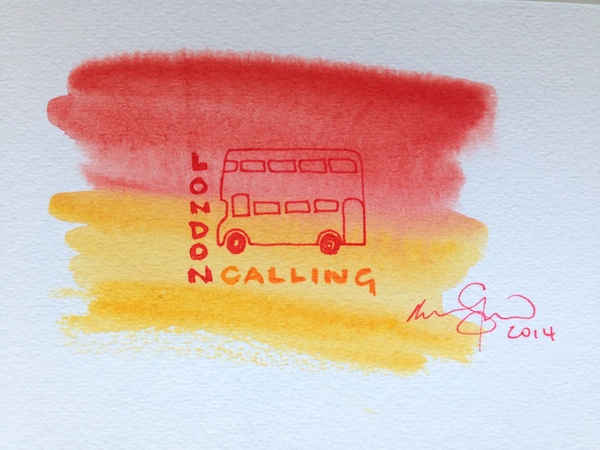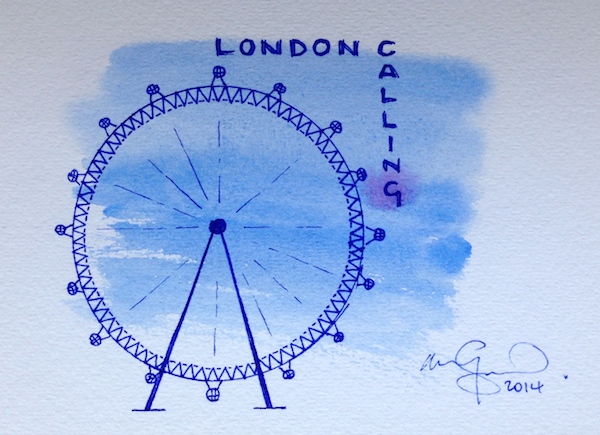I joined David Zinger’s Employee Engagement network back in March 2009 and since then I’ve gained a lot from being a part of this network. I’ve contributed, shared and learned, and I’ve met David twice on his visits to the UK. I think the network is a helpful resource for people curious about how to make work more enjoyable and useful, and if you’re not yet a member, pop over and take a look – and if you like what you see then maybe join in?
The reason I referenced this network today is that I received a super email from David this week in which he shared a video he’d posted on the network called Steal Like an Artist.
The video is an interesting tale told by Austin Kleon as he traces the roots of his ‘original’ ideas and thinking about creating poetry directly from the newspapers of the day all the way back to the mid 1700s. Not so original after all huh? Kleon acknowledges this and goes on to encourage us to steal and reinvent pieces of work we admire, and mash up the old and the new to create something different…ish. I don’t have a newspaper to hand right now, but I will buy one and see what poetic efforts I can steal extract from it soon.
Watching the video, I was reminded of being in the company of a few friends earlier this year, when among other things, we tried an experiment with poetry which went something like this: I encouraged people to think of a list of words around the themes of water and movement (we were in Greenwich close by to the River Thames), and once people had a few words and shared them with the group, we each then looked to integrate our words into verse. Pencils and paper were provided along with some ink pencils too, so that people could add colour to their emerging work. Because we approached the task in stages it seemed to make it easier for people to produce interesting work than if we’d all just tried to write a poem from scratch. Here’s some feedback from a few of my fellow thieves poets after they’d had time to reflect on the process.
I enjoyed the peace, the step by step building, delving into something deeper. I felt prepared and safe, yet ready for something unsafe. I was surprised at the emotion it created, although writing poetry myself, I realise it can be an amazing conduit. I felt it connected the group, and yet was an individual isolation. Paradoxically. Meg Peppin
What was unique about the experience was being with my creativity alongside others in a way that I had not experienced before. I very much enjoyed experiencing and seeing compelling aspects of others naturally surfacing through the process, linking me to their creativity, passion and power of their contribution. For me personally it provided an opportunity to access a different way to face a challenge. Simply by exploring one word, I found an ease of flow and depth. I took away a personal commitment to use the process whenever stuck, be it in writing, creating workshops or bedding down new thinking and new approaches. Natasha Stallard
Your session, like some of the others featured what i consider to be an important aspect of facilitating conversation and making things happen and that was – it was companionable. By this I mean we were doing an activity together which led to other things ie conversation, tears etc. I’m going to write about being companionable at some point because it so powerful for letting other things happen. This was my number one take-away.
So . . . really liked the fact I was sharing an activity with everyone else. I liked they fact I was free to do whatever i chose – bit of painting, poetry. Wasn’t sure where I or we as a group were going but I liked that and it felt OK. I was less concerned about what I would leave with, i.e. a decent poem and enjoyed more the experience.
I liked the sense of place and connections with where we were (Greenwich, river) and I enjoyed the way you facilitated the session – bit of nudging, suggestions . . . helping us along. I liked the context you provided us with – I thought that was a good bit of hosting, something I liked. I also really enjoyed seeing what everyone else did and their reactions. Some powerful responses which left me wondering about peoples’ past experiences. I got snippets of people but not the whole picture. Martin Couzins
On returning home, I stole the idea had a go too and produced this drawing/doodle/poem/video – called Slowly Bares the Soul
So what? Well I think the video David sent out and the experiences it reminded me of, point out the importance of reinvention and repurposing, of being open to new possibilities, and also to letting ideas percolate, layer and develop. Someone should write a poem about that.
Thanks to David Zinger, Austin Kleon, Megan Peppin, Natasha Stallard and Martin Couzins. Without people, you’re nothing.



